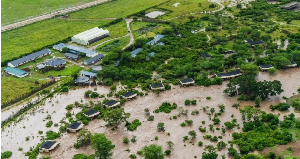Regional News of Wednesday, 16 May 2012
Source: GNA
Sub-Saharan Africa cannot sustain growth without ending hunger - UN report
The United Nations has noted that Sub-Saharan Africa cannot sustain its present economic growth unless it eliminates the hunger that is affecting almost a quarter of its people.
According to a new United Nations report launched in Kenya and made available to the Ghana News Agency in Accra on Wednesday, calls for new approaches to empower local communities to ensure food security in the region.
The report quotes Ms Helen Clark, Administrator of the UN Development programme as saying that “Impressive GDP growth rates in Africa have not translated into the elimination of hunger and malnutrition ...Inclusive growth and people-centered approaches to food security are needed”.
According to the report, with more than one in four of its 856 million people undernourished, Sub-Saharan Africa remains the world’s most food-insecure region.
There are more than 15 million people at risk of malnutrition in its Sahel region alone – stretching from the Atlantic Ocean to the Red Sea – and an equal number in the Horn of Africa remain vulnerable after last year’s food crisis in Djibouti, Ethiopia, Kenya, and Somalia.
The report; “UNDP’s Africa Human Development Report 2012: Towards a Food Secure Future,” stresses that action on agriculture alone will not be enough to eliminate hunger.
It suggested new approaches which should include the improvement of health services and agricultural infrastructure, as well as giving a greater voice to the poor through strengthened local governments and civil society groups.
“Building a food-secure future for all Africans will only be achieved if efforts span the entire development agenda,” the report stated.
The report is the first in UNDP’s Human Development Report series which focuses specifically on Africa.
It underlines that food insecurity should not be prevalent in a continent that has been experiencing high rates of economic growth and improvements in life expectancy and schooling in recent years.
While acknowledging that there are no quick fixes, the report emphasizes that food security can be achieved through immediate action in four critical areas; increasing agricultural productivity of smallholder farmers; and boosting nutrition by expanding access to health services, education and clean water.
The others are, implementing social programmes that protect farmers against natural disasters and conflict and giving women and marginalized groups access to land and technology.**










